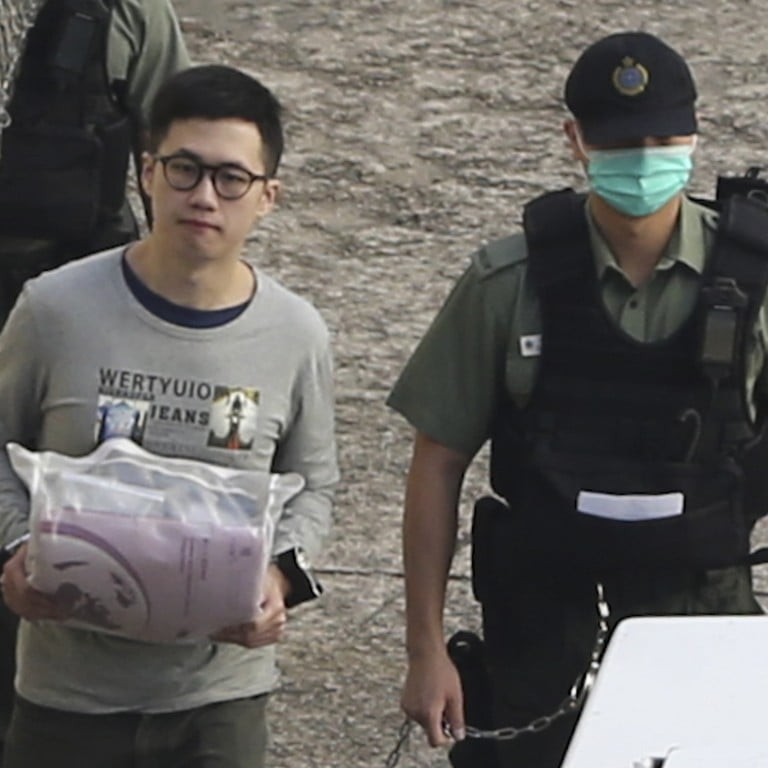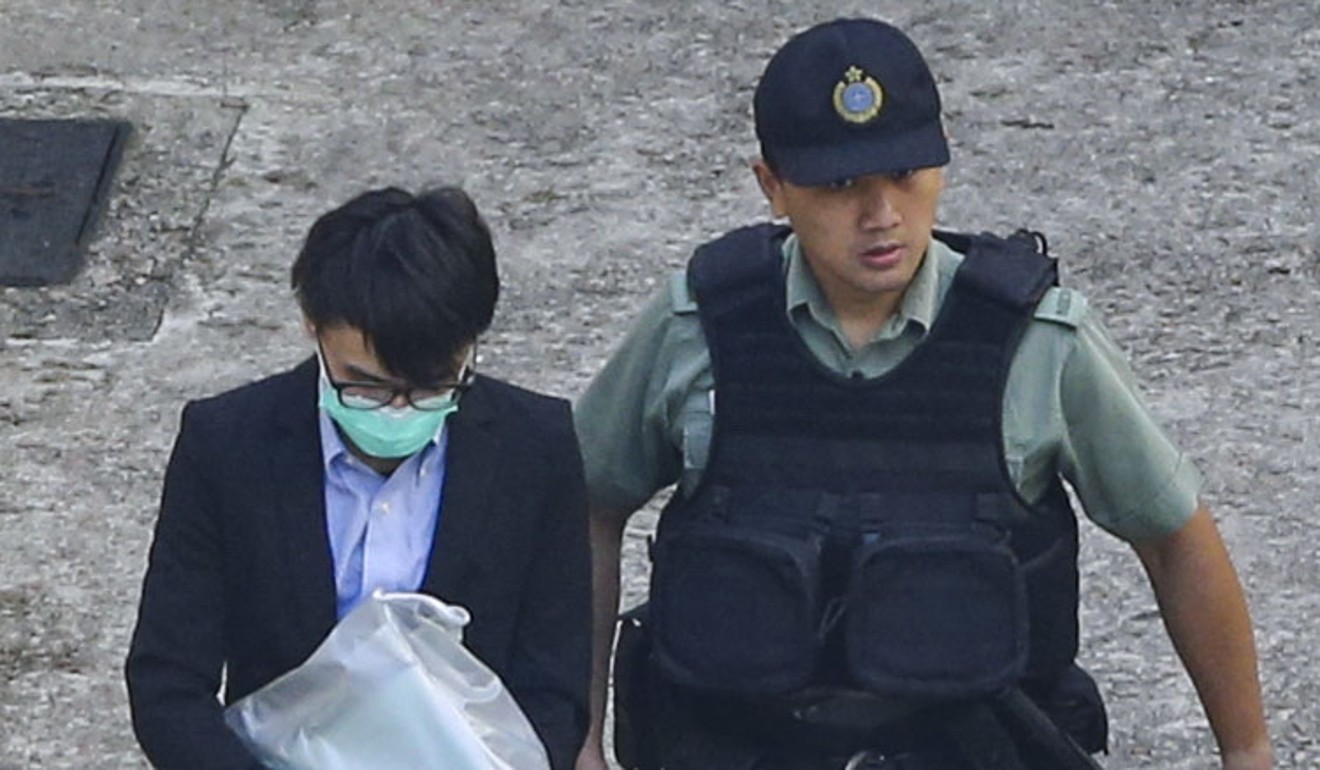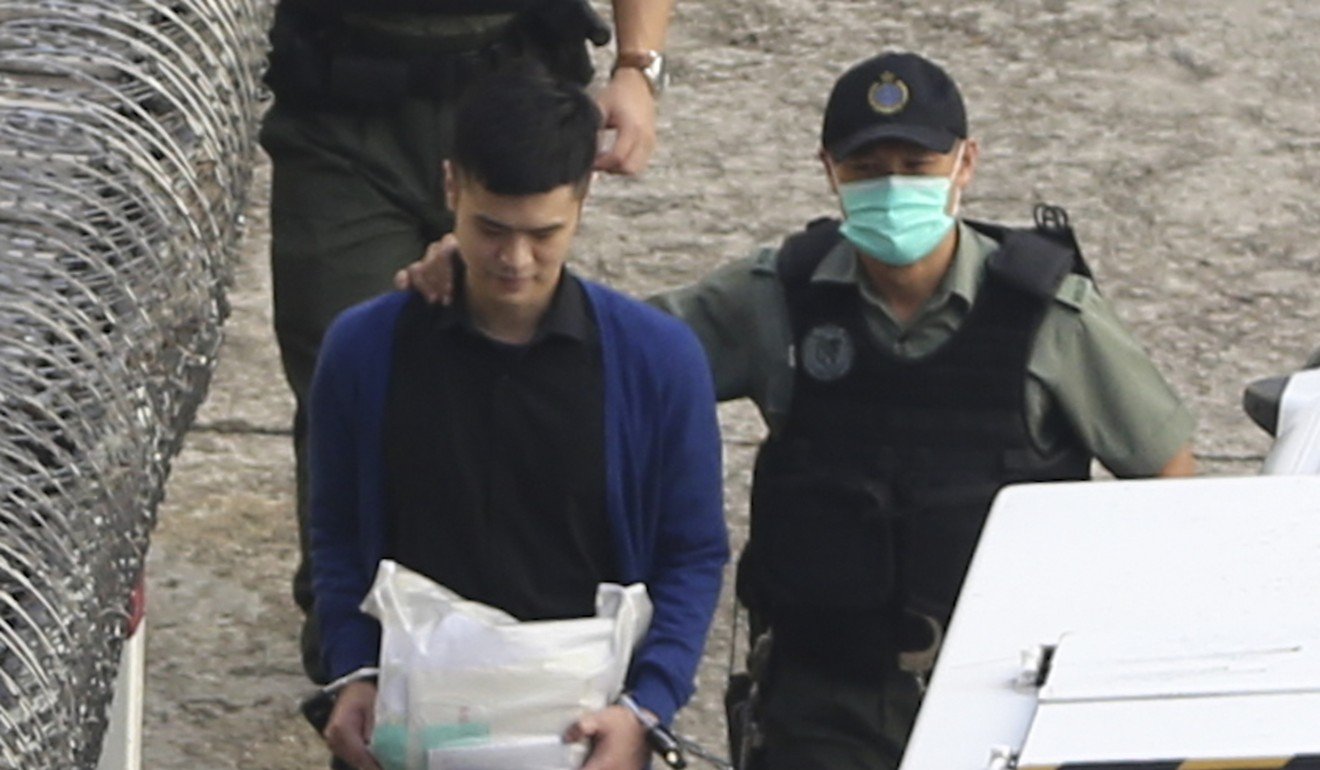
Hong Kong body-in-cement murder suspect says he was only following orders by injecting alcohol into victim – as defence begins at High Court
- Suspect says it was his flatmate and co-defendant who came up with the idea of using a syringe to inject the victim with wine
- Three defendants had pleaded not guilty to murder after businessman found encased in a block of cement in Tsuen Wan in 2016
A Hong Kong man on trial for the alleged murder of his business partner, whose body was found encased in cement, has admitted to injecting the victim with alcohol – but said he was only following instructions from his co-defendant.
Testifying for the first day in the High Court, Tsang Cheung-yan, 30, on Thursday said it was his flatmate and co-defendant Keith Lau, 24, who came up with the idea of robbing his 28-year-old business partner Cheung Man-li, nicknamed Ah J.
Tsang said that when he woke up in his flat on March 4, 2016, to find Lau pressing Cheung’s face with one hand while propping on the sofa with the other, he thought his flatmate was carrying out the plan and responded to the request to administer alcohol injections.
“I didn’t know what was happening,” Tsang said. “I only knew that [Lau] was very fierce, so whatever he told me to do, I did it … I was already very frightened.”
Tsang said he “casually took a syringe and … a bottle of wine” then injected two jabs of alcohol into Cheung’s leg, while the man was sandwiched between Lau and their other flatmate, Cheung Sin-hang, also known as Ah K, 26.

When Lau released his hand after six to seven minutes, Tsang said his business partner “did not have any response” and “did not move a bit”.
“Did you have any idea what happened to Ah J?” Tsang’s defence counsel Alex Ng asked.
“Perhaps he’s dead,” the defendant replied.
Hong Kong body-in-cement murder trial halted and jury dismissed as judge falls ill
Tsang, together with his co-defendants Lau and Cheung Sin-hang, have pleaded not guilty to one joint count of murder, which allegedly took place on March 4, 2016, after his business partner was found encased in a block of cement in a unit at the DAN6 industrial building in Tsuen Wan.
The court heard Tsang first met the deceased in 2007 and became “very good business partners”, earning money by taking out loans from financial companies.
Cheung also made investments and tried to start a company, once earning HK$2 million (US$255,545) from a mainland investor in a plan that did not come to fruition.
In February 2016, Tsang said Cheung wanted to invest in a real estate project in Australia and began asking for funding amounting to HK$5 million.
But when Tsang did not immediately secure investors, he said that Cheung made repeated offers to reduce the sum to HK$1 million, then HK$500,000 and finally HK$200,000. He said this made him and his flatmates wonder if Cheung was trying to cheat them.

Tsang decided not to lend him money and suggested “playing a joke on him”, to which Lau allegedly replied: “Right, don’t lend him any money, rob him once.”
The three defendants then conducted reconnaissance at Kwun Tong Promenade, with a plan for Lau to rob Cheung in disguise. They abandoned the plan after finding the site had too many security cameras.
When they returned to the Tsuen Wan flat, Tsang said Lau then instructed his flatmates to buy chloroform, ropes and gloves and keep them on “standby”.
Who really killed Hong Kong’s body-in-cement murder victim?
On the same day, March 4, Tsang received Cheung’s message, claiming he was ready to provide project documents that would help convince investors. They met for lunch and returned to the flat for a discussion.
Tsang did not participate, saying that he had not slept for some 20 to 30 hours and fell asleep on a mattress, leaving Cheung alone with his flatmates.
Tsang said all three defendants were “very confused” to find his partner had no pulse. He said the younger Cheung attempted to revive him with resuscitation, but to no avail.
“We reckoned that we had to move him out,” Tsang said.
His testimony will continue before Mr Justice Patrick Li Hon-leung on Friday.

